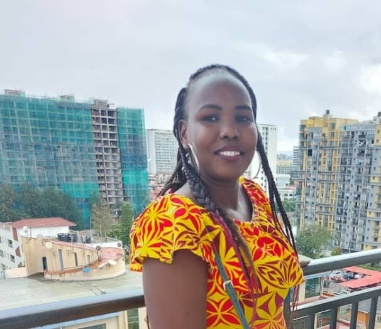By Esther Lohutuhureng
The 1951 Geneva Convention is the main international instrument for refugee law. The convention clearly spells out who a refugee is, the kind of legal protection they receive, and other types of assistance.
As a general principle of international law, every treaty in force is binding upon the parties to it and must be performed in good faith. Countries that have ratified the Refugee Convention are obliged to protect refugees on their territory according to its terms.
However, South Sudan is a member of the 1951 Convention on the Status of Refugees and its 1967 Protocol, after it was ratified by the Transitional National Legislative Assembly.
Among the provisions that state parties to the refugee convention and protocol are cooperating with UNHCR—Article 35 of the Refugee Convention and Article [(11) (2)] of the 1967 protocol contain an agreement for state parties to cooperate with UNCHR in the exercise of its functions and in particular to help UNHCR supervise the implementation of supervision found in those treaties.
Refugees and third-country nationals arrived in South Sudan, seeking safety and protection, following the outbreak of fighting in Sudan in April 2023 between the Sudanese Army and the Rapid Support Forces.
Thanks to the UNHCR for providing basic needs such as shelter, water, and health services to them at the Gorom Refugee Settlement in Juba, Central Equatoria State. Actually, all the basic needs given to those refugees remained unmet by the host community by the government.
For instance, the majority of host communities are experiencing high prices for water and food items. Consequently, the host community is sort of jealous and envious of the Sudanese refugees.
In addition to the feeling that refugees are economically advantaged because of the humanitarian assistance they receive from international humanitarian organizations, this is likely to result in tension between refugees and the host community.
The host community should treat refugees with respect and dignity while keeping in mind that anyone can become a refugee; the evidence is clear during the 2013 civil war in the country when many South Sudanese fled to Sudan and became refugees in Sudan.
Nevertheless, Sudanese are now here in our country seeking shelter, protection, and food. Who would think that one day Sudanese would seek refuge in our country? But because no one chose to become a refugee, that is why they are in our country.
The tension between refugees and the host community is always caused by many factors, such as limited resources, politics, and insecurity. However, if the UNHCR and its partners launch the Refugee-Host Community Project, it will improve the livelihoods of refugees and host communities.
Moreover, in a developing country like South Sudan, where the humanitarian situation is very bad and unbearable for its own citizens, it is very challenging to provide a conducive environment for the refugees.
Therefore, it is critical to protect refugees by bringing humanitarian assistance programs to the host communities. In doing so, it is possible to reduce tension between the refugees and the host community. Besides, refugees would not be targeted by the host community.
For instance, the conflict that occurred between South Sudanese refugees and host communities in the Adjumani district of Uganda over the scarcity of wood fuel Host communities accused refugees of being the reason behind the shortage of firewood and other basic services.
To avoid such incidents, UNHCR should not focus only on refugees’ livelihood programs; instead, they should also include neighboring host communities in livelihood activities.
These livelihood activities allow refugees and the host community to secure the basic necessities of life, such as food, water, shelter, and clothing. As a result, good refugee-host relations would emerge for peaceful coexistence between refugees and the host community.
However, livelihood programs for host communities should be stressed for the protection of refugees from being targeted by host communities, especially in poor countries like South Sudan.
The World Bank should donate more funds to the host government in order to improve infrastructure, education, sanitation, and health sectors in the country.
In doing this, refugees and the host community would have a healthy relationship because both of them have sufficient basic needs, and there would be no tension between refugees and the host community.
Therefore, equally benefiting from UN services would have a positive impact not only on the host community but also on the refugees as well. Moreover, even if the refugees someday voluntarily return to their home country, the host community would benefit from the infrastructure. However, when it comes to funds, the issue of trust in the host government is questionable.
To achieve refugee-host good coexistence, it is necessary to give the host community assistance. In doing this, the host community will not only open their doors to the refugees but also their hearts.
The writer can be reached through Tel: 0921492857 Esther090119@gmail.com




